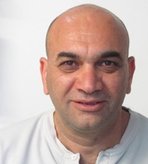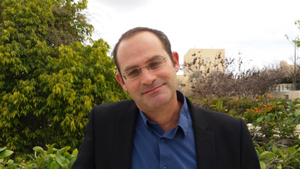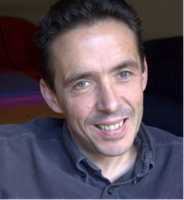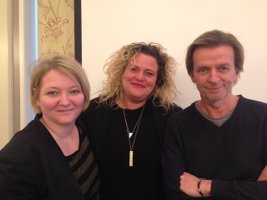

4th INTERNATIONAL CONFERENCE ON NON-VIOLENT-RESISTANCE 2016
25th of may 2016 – pre workshop – Eia Asen and Haim Omer
26th and 27th of may 2016 – introduction from Denmark and Sweden, Haim Omer, plenty of workshops, speaks, poster presentation, dinner event and much more to come.
Confirmed speakers at the conference 26-27th of may 2016, 9am-5pm:
Haim Omer, Israel
The anchoring function: A bridge between the model of "New Authority" with attachment and mentalization theory
The concept of the anchoring function unifes the field of the new authority with attachment and mentalization theories. When parents manifest parental presence, vigilant care, non-violent resistance and other elements of the new authority, they provide the child with a positive and stable relational frame that furthers secure attachment. Parental anchoring helps to protect the child and the family against damaging emotions (aggressive, self-destructive or anxious), and creates a positive mental representation of the parents' in the child's mind. In the lecture practical examples will be given on how the parents anchor themselves and the child through their acts and attitudes.
Idan Amiel, Israel
Clinical psychologist and director of the parents' counseling clinic at Schneider Medical Center in Israel. Over the last 15 years he has been a key professional in developing the concepts of NVR and New Authority side by side with prof. Haim Omer. He leads now the New Authority Center team in Israel and most of his time is dedicated for promoting and expanding the principles of the New Authority concept both in Israel and Europe.
Keynote lecture title: "From NVR and Attachment to redefining the concept of Authority"
The lecture focuses on the concept of 'Authority' from a socio-cultural perspective and suggests guidelines and acts to redefine it. Authority is about relationship between unequal parties – may it be a relationship between a parent and a child, a teacher and a student, or the relationship between residential team and a group of children living there. As much as NVR, metallization and attachment theories are closely related to our inner attitude, authority is closely connected to the social and cultural context that people grow in. Side by side with understanding the historical roots and legitimacy of authoritative entities (may they be the Church, the University or… Google), we will try to combine old and new ideas in redefining the concept of authority for caregivers. Using clinical examples from schools, residential settings and psychiatric wards we will see how (new) authority figures can bolster the feeling of belonging of children and adults alike and how the traditional African proverb “It takes a village to raise a child” can set a compass to modern professionalized teams and caregivers in their work with kids.
Peter Jakob, Uk.
Consultant Clinical Psychologist
With a background in social work, Peter has worked as Clinical Psychologist and Family Therapist in both CAMHS and Adult Mental Health for over 33 years, specialising in children and families involved with child protective services. He has in-depth knowledge of treating trauma as the after-effect of childhood sexual abuse and other forms of sexual violence, physical abuse, neglect and domestic violence, as well as extensive experience in providing therapy for parents’ mental health problems.
Peter has introduced Non Violent Resistance to the UK. He has adapted the approach for heavily traumatised, multi-stressed families, and his work with looked-after children has inspired him to develop a child focus in NVR. Peter is a prolific national and international presenter.
Keynote presentation abstract
From larger system to child focus: treating trauma with NVR
This presentation will introduce delegates to the three aspects of the adapted NVR model for trauma: transforming the larger system, enabling traumatised parents and other care-givers to acquire a position of strength through trauma-focused methods, and developing a child focus.
When trainers in NVR speak to practitioners who work with traumatised children and their families, foster carers and residential homes, they are likely to hear: That may work with more resourceful families, but the families we work with are too isolated…. the children are too traumatised…. the parents have mental health problems. NVR requires a support network; it requires resilience in parents – so NVR won’t work for our clients…. However, we can put things on their head: Because it is so difficult for these parents to feel connected and supported within the wider family and community, because they suffer from mental health problems that were created by a lifetime of suffering from domestic abuse, because the child has been subject to developmental trauma they need NVR. Peter Jakob will present his adaptation of NVR for working with trauma. Using NVR methods to transform the larger system so it becomes safer for the family, the nuclear family becomes a recovery environment. In a second stage, by actualising internal and interpersonal resources, nonviolent methods can be used in a trauma-focused way to help parents process the trauma that consistently gets re-evoked by their child’s aggressive behaviour. Finally, from a position of strength, the care-givers one-sided use of child-focussed reconciliation gestures enables them to facilitate the caring dialogue, in which the child can communicate unmet needs, and the parent is able to respond to the child’s distress signals by addressing their need.
Weblink: www.partnershipprojectsuk.com
Uri weinblatt, Israel
"You are too tough!" "And you are too soft!"
Regulating the Shame of Parents and Helping them to become the Best Team They Can Be
The biggest danger to a successful NVR parent training process is the situation in which the parents begin fighting between themselves. When father and mother criticize, accuse, blame, yell or reject each other, they make it extremely difficult for the therapist to suggest any constructive intervention. Most parental fights are a result of unregulated shame – parents feeling humiliated, unappreciated and alone. And while parents are extremely vulnerable to experiencing shame, they also have a built-in advantage in regulating shame, namely, the advantage of being two. Actually, parents’ greatest resource for shame regulation is their relationship with each other. When parents work well as a team, give each other supportive feedback, and comfort each other after having a painful fight with the child, they provide the nurturance that keeps shame away. In the presentation, we will learn to identify the effects of shame on parents and participants will observe specific interventions on how to turn parental fights into intimate and empowering moments for the parents.
Dr. Uri Weinblatt is a clinical psychologist and head of the "Systemic Mirroring" family therapy center in Israel. During his Doctorate studies, he assisted Haim Omer in developing the Parental Presence and NVR programs, and contributed chapters and articles on these themes. In recent years he focused on developing interventions for regulating intense shame in adolescents, families and schools. His upcoming book on Shame will be published in fall of 2016.
Frank Van Holen, Belgium
Frank is doctor in psychological sciences and family therapist. He has been working in foster care for over 23 years. He is director care policy of a Flemish foster care organisation. Furthermore, Frank is associated with the Vrije Universiteit Brussel, Department of Clinical and Lifespan Psychology. He is (co-)author of numerous scientific publications in the field of foster care. His PhD handles the adaptation and evaluation of the Non Violent Resistance approach for foster parents.
Keynote presentation abstract
Training in non violent resistance for foster parents
A high proportion of children placed in family foster care suffer from severe emotional and behavioural problems. These are associated with parenting stress and non-effective parenting practices in foster parents, and with unplanned premature endings of foster care placements. Consequently, interventions aiming at improving the well-being of foster children and foster families are urgently needed. This presentation addresses the adaptation of the NVR-approach for foster parents. The training manual is presented providing guidelines, and outlining the sequence and contents of on average 10 treatment sessions. The main modifications for foster families and foster children are described, including when and how to involve members of the biological family in the supportive network, how to meet special needs of foster children such as trauma and attachment problems. Finally, findings from the evaluation of this intervention for foster parents are described.
Paul Johansen, Sweden & NIna Boelsgaard & Rikke Lyngdam, Denmark
Coordination and Loving Footprints
This keynote will be a guide to understand the Scandinavian context in which the mindset and the concrete tools of NVR can be useful, but it will also be the story of what ingredients we, as practioners, have had to add to the NVR-recipe, to make it culturally relevant and ”edible”.
We will present recent work from Sweden where a young girls announcement was deeply rooted in our everyday pre-understandings of attachment. And we will present how a mentalizing brain scanning method can help a danish family to regain some trust in each other and their new safer life.






Copyright © All Rights Reserved.